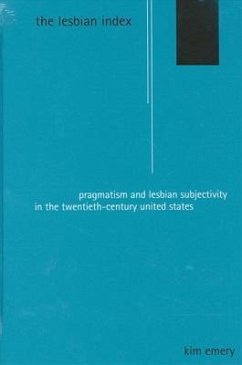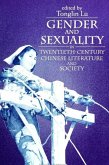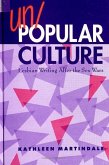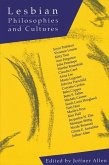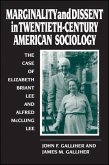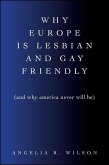For more than a century, female homosexuality has been a frequent flashpoint for conflicts configured around such oppositions as nature and nurture, essentialism and constructivism, foundationalist philosophies and poststructuralist ones. In The Lesbian Index, Kim Emery offers the pragmatic semiotics of C. S. Peirce as a way out of this divide. In particular, she introduces Peirce's notion of "indexicality," which marks the intersection of the historical world with the conceptual one, as a useful theoretical tool for tracing the development of lesbian existence and experience. Through readings of historically significant literary works, from the first known U.S. novel with an avowedly homosexual heroine (1895's Norma Trist) to Mary McCarthy's incongruously queer midcentury account of American womanhood (1963's The Group) to Sarah Schulman's damning re-vision of On the Road (1986's Girls, Visions, and Everything), Emery demonstrates how fictional accounts of lesbian lives have engaged key national narratives, reexamining race, rights, private enterprise, imperialism, and other core concepts of American culture. In the process, she accumulates considerable evidence that representations of lesbian identity are not peripheral to mainstream U.S. culture, but a crucial locus and telling index of contested American meanings.
Hinweis: Dieser Artikel kann nur an eine deutsche Lieferadresse ausgeliefert werden.
Hinweis: Dieser Artikel kann nur an eine deutsche Lieferadresse ausgeliefert werden.

